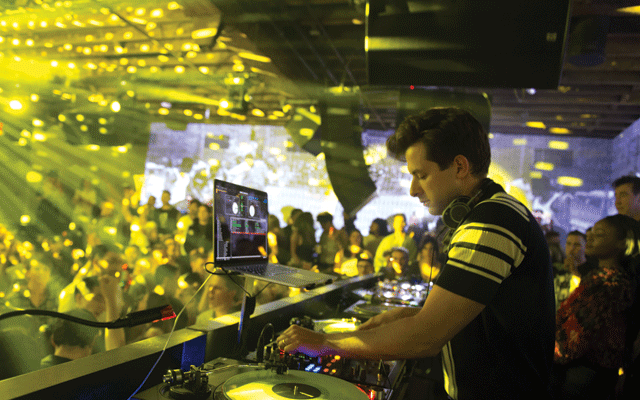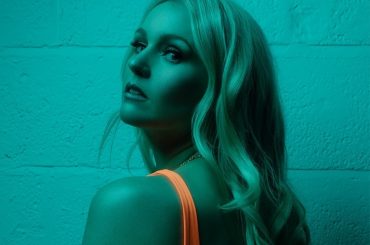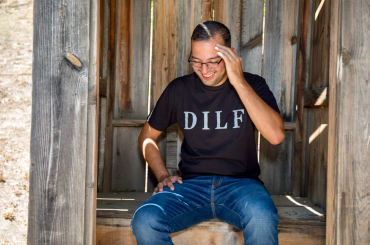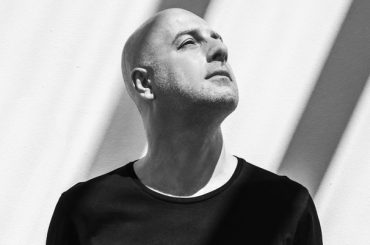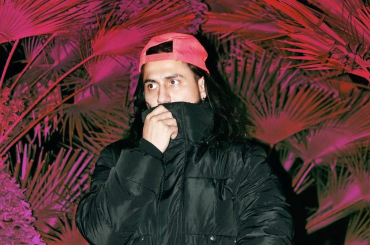He may playing in Brooklyn, but there’s an air of “Uptown Funk” anywhere Mark Ronson lays his head.
Currently behind the decks at Williamsburg’s Verboten nightclub, Ronson is throwing down for a pre-weekend dance party for the packed Thursday night crowd. Taking to the stage just a few minutes after midnight, Ronson wastes no time launching into a seemingly endless series of certifiable classics across a broad spectrum of genres.
Before even 15 minutes can pass, the unmistakable vocals of Amy Winehouse take over the room as her Ronson-produced single “You Know I’m No Good” plays to an exuberant crowd. For the better part of the next two hours, the stylistic chameleon will weave in and out of musical icons, genres, and time periods, pulling records from Jay-Z, James Brown, Missy Elliott, Parliament-Funkadelic, Stevie Wonder, and even his own productions—“Bang Bang Bang” from 2011’s Record Collection and the evergreen cover of Kaiser Chiefs’ “Oh My God” sung by Lily Allen—out of his proverbial record crate.
With the year he’s had—which included a stint atop the U.S. Billboard Hot 100 chart for 14 consecutive weeks with “Uptown Funk,” his collab with Bruno Mars—it may seem strange to some, especially the casual music fan, to see him taking to the DJ decks for such an intimate gig. However, while he may be all over radios now, his origins—and heart—lie firmly in the art of the throwing down records for a slammed club.
Prior to the release of Version in 2007, it was far more common to associate Mark Ronson with the fashion-show afterparties of the then-prevalent world of the “Celebrity DJ” than his well-versed skills in the studio. The album’s widespread critical and commercial success and Ronson’s Grammy-winning work on Amy Winehouse’s album Back to Black shifted the public’s focus toward his recordings. While his follow-up LP, 2010’s Record Collection, didn’t achieve quite the dizzying heights of its predecessor, it further proved his status as an artist capable of crafting top-notch records that are as memorable as they are effortlessly chic.
This summer, the British renaissance man is hitting the road for a series of live shows at festivals across Europe, Australia, and beyond, including Glastonbury, Lovebox, and Splendour in the Grass. At each date, he and a band will bring the world of his new LP, Uptown Special, to life. The 11-track album—the result of an intricate recording process with co-producer Kevin Bhasker—is a vibrant package that manages somehow to plant its feet in both the present and past simultaneously. Peppered with a perfect amount of wide-reaching guest artists, including Bruno Mars, Tame Impala’s Kevin Parker, Miike Snow’s Andrew Wyatt, Mystikal, and even Stevie Wonder, the album offers a nostalgia-tinted excursion through moments of uproarious joy and existential introspection.
DJ Times caught up with Ronson while he was in New York City rehearsing with his live band for the summer’s performances, and he dished on the creation of the album, the runaway success of “Uptown Funk,” the never-ending debate on sampling, and just about everything in between.
DJ Times: How was the approach for Uptown Special different from your first three albums?
Ronson: I think there are several things. As I make more records, I gain a lot of experience. I also make a lot of records with other people in between, so I’m always learning or picking up stuff. Other projects I’m working on just find a way into my own record. I realize—especially with how music may change and labels drop people—not only am I in a lucky place to make a fourth album, period, but also I’ve sort of have this thing in the back of my head like it’s the best thing I’ve ever done. It’s been a couple years since my last record and people like “Bang Bang Bang” and “Somebody To Love Me,” but it had the Version album before it, which was this massive thing. I think I imagine that there’s all this competition around me, but really it’s a way to mentally psych myself up. I just have to know what I’ve made is one of the best things I’ve made or the thing that I’ve worked the hardest on.
DJ Times: Were there any other differences?
Ronson: Jeff Bhasker co-produced it. I’ve never produced one of my own records with somebody else before. I have so much respect for him as a musician and an arranger. It was kind of intimidating because he’s a prodigious jazz piano player who went to Berklee [College of Music], so I knew I’d be going into a room with someone… and I know I won’t always have the best idea or know the most. That sounds like a good thing, but with being a music producer, you like feeling like the boss.
DJ Times: How did you approach the record? What did you have in mind with it?
Ronson: Obviously, I had something in my head that I wanted to make, and the artists just sort of happened along the way—with the only sort of coincidence is only having to do with wanting to make sure the album would really a raise the game a bit.
DJ Times: What about selecting the guest artists for the album?
Ronson: I did something on this record that I hadn’t done before, but was really important to me. I wanted to make sure everybody was at least on a few songs, almost like there was a line running through it.
DJ Times: How so?
Ronson: On Record Collection, I must have had 15 people on the songs, if you count all the vocalists. On this one, Bruno is on a few songs, Jeff’s on a few songs, Kevin [Parker] is on three songs, Andrew is on a few songs, and so on. I guess I reigned it in somewhat.
DJ Times: Was there anything else different?
Ronson: I think that also when I’m making records, I sometimes think in my head, “Well, everyone knows me for being a DJ. I’m not an artist or singer-songwriter, so my records have to reflect that; everything has to have a beat or depth.” On this album, I kind of switched up that mode of thinking. I’m obviously always going to be making records with that DJ side of my brain; it’s impossible to remove that. I can’t lose a break from SOHO’s “Hot Music” or a line from Snoop Dogg’s “Ain’t No Fun.” There’s this DJ jukebox that will never fully be switched off. On this album, I made the record I actually want to listen to as well, so it’s sort of like—I guess—the kind of shit that I want to play in the car and not just me thinking about what else to pull out of the crate.
DJ Times: Every artist says they never expect a track to be a huge smash, but did you think that “Uptown Funk” was particularly special when you finished it?
Ronson: I felt like there was something exciting about it from the very first jam session we kind of came up with it at Bruno’s studio. A jam was what it really just came out of, with Bruno on drums, I was on bass, and Jeff was on keys. Basically, Bruno was on tour and every time we tried to fix it… it felt forced, as we never felt the same excitement as the first day we played it. We just fought for it; there were so many times the song was going to end up in the trash.
DJ Times: But it worked out.
Ronson: When it was done it felt great because: A) I couldn’t believe it was done and B) we had really worked so hard to make it feel unlike anything else. I don’t know if there’s really anything like it. There was no reason for us to expect it to be on the radio; it doesn’t have a chorus. Everything about it just made it a record I couldn’t wait to pull out and play in the club.
DJ Times: It’s interesting to note the “All Gold Everything” interpolation on the track. It’s not uncommon for a rap song to sample a funk song, but you don’t really see it the other way around that often. How did that part make its way into the song?
Ronson: Bruno had a couple gigs playing with his band, and they were playing that song and that’s how it sprang in his head. It’s like when I’ve DJed before and I’m looping up a break in Serato and then throwing the a cappella from Biggie Smalls’ “Hypnotize” over it. I remember hearing “Black Cow” by Steely Dan into “Déjà Vu” by Lord Tariq: you’ve got a hip-hop song and the song it sampled played back-to-back. They make people the move the same way and give you that same feeling. As a DJ, I know this, and when making music sometimes I think that some things will blend well together.
DJ Times: You did a TED Talk last year about sampling. How were you approached to do that and why did you actually decide to do it?
Ronson: I was just approached when they emailed me. It was the 30-year anniversary, so they wanted to do something that was a bit of an overview of the last 30 years of music and asked if I was interested. So first, it was kind of a straight ego thing like, “Holy shit, I’ve been asked to do a TED Talk!” Then, as it got closer and I was reading all of these books realize you’re basically writing a college thesis, and then you’re like, “Holy shit, why did I sign up for this?” I do love talking about the thing that I love the most, which is music. I had a whole bunch of ideas I’d been rehearsing and researching for months, but the week before I kind of chucked them all out because I realized that it might be more interesting to scratch video from some old TED Talk videos, almost like the same way DJ Premier used to scratch words from other songs to make his own meaningful sentences. That’s what I tried to do, and it’s honestly the most terrified I’ve ever been—but I’m glad that I did it.
DJ Times: The driving message of it is, “Sampling is not hijacking nostalgia wholesale.” How relevant do you think that is to the music industry of today, in comparison to when hip-hop was first emerging?
Ronson: Well, there are two different types of sampling. There’s sampling, what I’m saying is the more cut-and-paste, chopped-up style of sampling—you know like things from DJ Premier or DJ Q-Tip or obscure breaks or things like that. You think of things like when Dr. Dre used samples in songs like “The Next Episode.” It was all about finding something that nobody ever used before. When we got into the ’90s, we started thinking about sampling things like Diana Ross and David Bowie, and it got a little bit more into shining the past. Those are things that we remember. Right now, when you look at some of the charts, there’s not really so much sampling going on anyway, so I don’t know how absolutely relevant it is.
DJ Times: Despite the massive pop hits, you’re still DJing in intimate venues. What’s the importance of still doing gigs in smaller clubs, in addition your massive festival gigs?
Ronson: I just still love DJing. I love being able to get onstage and play my music, but I started DJing because I love other people’s music. Specifically, in 1993 there was all hip hop out that you could only buy on vinyl in underground record stores and I was like, “Fuck, how do I get ahold of it?” So I taught myself how to DJ. Playing that music is very much what I love doing, having a crowd and that big energy. That will never go away. Also, it’s weird because like when I started—when I was playing little clubs like New Music Café or Rebar—the DJ wasn’t even necessary on display in a way that was visible to the dancefloor. Sometimes the turntables were set up at the end of the bar and you’d have the busboy going behind you while you’re trying to kill it. I love that. I love playing in those days when the room was sweaty and everybody was having a good time; I didn’t need anybody seeing that it was me DJing. Suddenly, you’re on a stage DJing and people looking at you—that still feels weird to me. Anyone can come to my show and enjoy it in any way to have a good time, but for me I much prefer playing anonymously in a corner knowing that everybody is dancing and having a great time because I guess that’s where I come from. Even now when I go up and play four of my records in a row to get it started, it feels weird, but I know people come because they like my music and want to hear my music.
DJ Times: You’ve got your full band live shows, in addition to your DJ sets. Do you think the two can coexist?
Ronson: Yeah, I do think it can coexist. Even when I was touring the last album, I always had a segment in the middle where I brought out turntables to do a DJ routine, while the band rested. It’s a really important part of me; I’ve spent 23 years honing this skill, so it would be foolish to not bring any of those tools to playing—even if it was with a live band.
DJ Times: What sort of impact has technology and its evolution had on your musical career?
Ronson: Well, part of me thinks I was better DJ before Serato era because I was always hauling a crate to the club and living in a three-floor walk-up wasn’t fun. So you really take the time to know what’s in each record that you’re taking that night. Sometimes with Serato, you’re looking at a list of 8,000 tracks and might as well toss everything in. It’s a very new style of DJing. I still like DJing to have more of a thread and feeling—something more soulful—but I’m guilty of that too sometimes. The thing about Serato that’s amazing is I can take a record I just made, throw a mastering plug-in on it, and play it five minutes later. That’s the incredible thing about technology.


